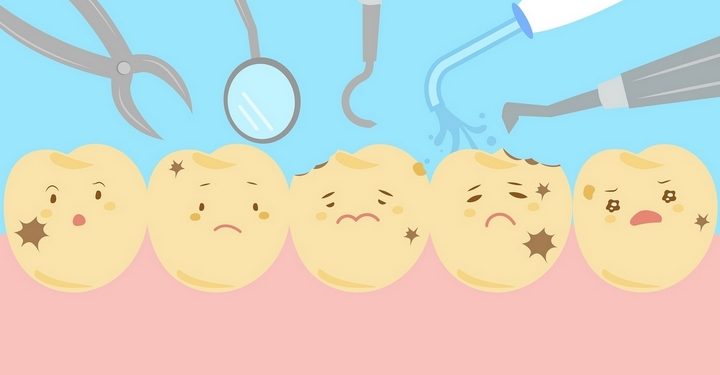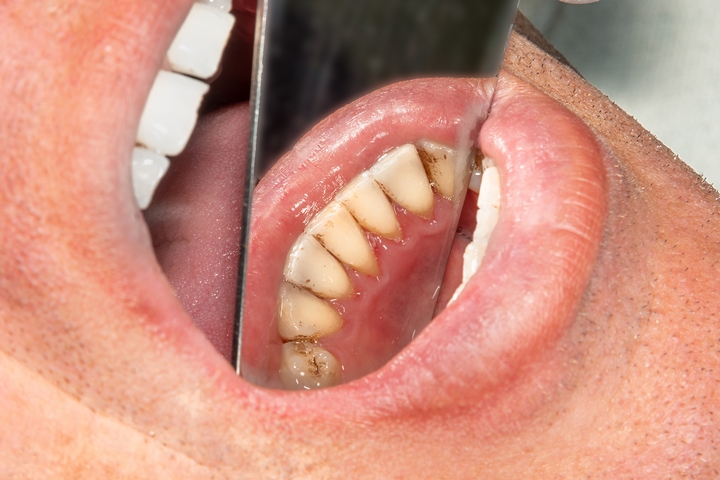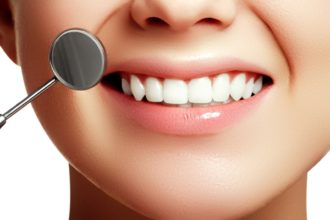13 Biggest Tooth Decay Causes to Avoid

Tooth decay occurs when tooth enamel becomes soft allowing acids created by naturally occurring bacteria in our mouths to cause teeth to break down over time. The resulting damage to the tooth caused by these acids can even result in a cavity. Cavities are the little holes left as minerals wear away. When these tooth decay causes are untreated, cavities will get larger and larger, potentially threatening the life of the tooth.
Fortunately, tooth decay is no reason to despair! Tooth decay is common, but the tooth decay causes are sometimes difficult to identity. Our behaviour and hygiene play a significant role in tooth decay, but so do our genres. Some people are simply born with better teeth. While environmental factors and our genetic make-up can be equally responsible, understanding what tooth decay is and what causes it better equips us for managing tooth decay and improving our overall oral health. These are thirteen of the top tooth decay causes:
1. Plaque

The main culprit behind tooth decay is the build-up of plaque. Plaque is produced by bacteria that form inside our mouths after we eat or drink. The plaque acids literally attack your teeth, dissolving the important minerals that make up their surface, and causing decay over time. Good oral care can manage the formation of plaque, and protect your teeth. If plaque builds up over time, your tooth decay problems might need more in-depth treatment procedures like dental implants.
2. Weak tooth enamel

Like our eye or hair colour, our genes are responsible for the structure of the enamel in our teeth. Stronger enamel is better able to absorb important cavity-fighting nutrients like calcium and fluoride. Weak enamel is more porous and has a harder time fighting off attacks from the acid in our mouths, making teeth prone to decay. Unfortunately, tooth enamel cannot be repaired or rebuilt. Our teeth contain a finite amount of enamel, and we have to work hard to protect it from loss or erosion from acid. This is another reason why good oral care is so important.
3. Saliva

Saliva is the body’s most important natural weapon against tooth decay. Saliva contains important minerals like bicarbonate, calcium, and phosphate that can repair damage to teeth. Saliva can help regulate the amount of the bacteria that causes tooth decay that is found in our mouths. Unfortunately, the amount and specific composition of our saliva is also shaped by our genes. A lack of saliva due to dry mouth caused by dehydration, taking medication or our behaviour will remove this protection. This allows harmful bacteria to run rampant in your mouth.
4. Immune system

A recent study completed at the University of Toronto’s Faculty of Dentistry has produced proof that tooth decay and cavities could be the result of our own immune system. When bacteria form in our mouths, our body’s immune system is designed to respond. The problem is that our immune system does not only attack the bacteria, it also attacks the entire environment around the bacteria—including our teeth! In this way, tooth decay is part of the collateral damage of our immune system’s war on foreign bacteria.
5. Tooth shape

The shape of a tooth may make it more vulnerable to the plaque build-up that causes decay. Sensitive or tight spaces are difficult to property clean by brushing or flossing, giving plaque a place to hide and grow. Unfortunately, being born with grooved or crowded teeth introduces more opportunities for tooth decay.
6. Sugar

Contrary to what you may hear people say, sugar itself is not a major cause of tooth decay. Sugar only one of many of the carbohydrates that produce cavity-causing bacteria. Eating sugary foods and drinks are more or less equally likely to cause the formation of plaque as other foods. The problem with sugar is the form that it takes. Hard candies, mints, raisins, and cereal easily get stuck in teeth, a great way to promote decay. Sugary carbonated soft drinks also contain harmful acids definitely erode tooth enamel. As we’ll see, how you eat and drink may be as important what you eat and drink.
7. Frequent snacking

When you eat, it takes as little as 20 seconds for acid to form in your mouth. The more often you eat, the more often you introduce these acids to your teeth, creating more opportunity for decay.
8. Smoking

Smoking tobacco is harmful to your oral health in many ways. Smoking stains teeth and interferes with your body’s immune system. As you smoke, the blood circulation in your mouth slows down significantly—reducing your body’s natural defenses like the amount of saliva that is able to form in your mouth and giving decay more time to occur. Debris in the smoke also rubs up against the surfaces of your teeth, wearing away enamel.
9. Snoring

Most people don’t know this, but snoring is actually one of the tooth decay causes that occur in a lot of people. That’s because snoring reduces the amount of saliva in your mouth, which is important to protecting your mouth from bacteria.
10. Inadequate brushing

Brushing regularly removes plaque from our teeth. It is an essential part of good oral care. In addition to the risk of brushing poorly, overbrushing can be abrasive to your teeth, wearing away enamel and damaging your gums. Dentists recommend brushing thoroughly, not aggressively.
11. Failing to floss

Flossing removes debris and plaque from your teeth, especially in difficult to reach areas like in between teeth and along the gum line. As with brushing, it’s important that you are flossing effectively, which means flossing thoroughly and correctly. The relationship between flossing and tooth decay is complicated and hotly debated, but flossing once a day, preferably at night, reduces the amount of plaque on teeth overnight, reducing one of the main causes of tooth decay.
12. Poor access to good dental care

Neglect is a major contributor to tooth decay. Unfortunately, the high cost of regular visits to the dentist can be a barrier to good oral hygiene. Too often, access to good dental care is a privilege enjoyed only by people who can afford it. Many studies have shown that poorer people have more frequent incidence of common and preventable dental problems like tooth decay.
13. Not visiting your dentist

We all know that it can be difficult to schedule a visit to the dentist, especially if you are not experiencing any problems. Did you know that missing dental appointments for just 2 years will significantly increase the risk of tooth decay? It’s true. Brushing and flossing are only part of a good oral health care regime. Very often, symptoms of serious tooth decay and other problems only present themselves late in their development. A dentist can detect serious issues early on, when many problems can be prevented or contained.
The symptoms of tooth decay can sometimes be difficult to recognize. You might not always know when a cavity is forming. This is why, in addition to brushing and flossing, regular visits to your dentist are important to monitor the condition of your teeth over time. Symptoms to watch out for include sensitivity and pain, staining on a tooth’s surface, or holes or indentations in teeth. The good news is that tooth decay occurs in stages and there are ample opportunities to intervene with proper dental care.


